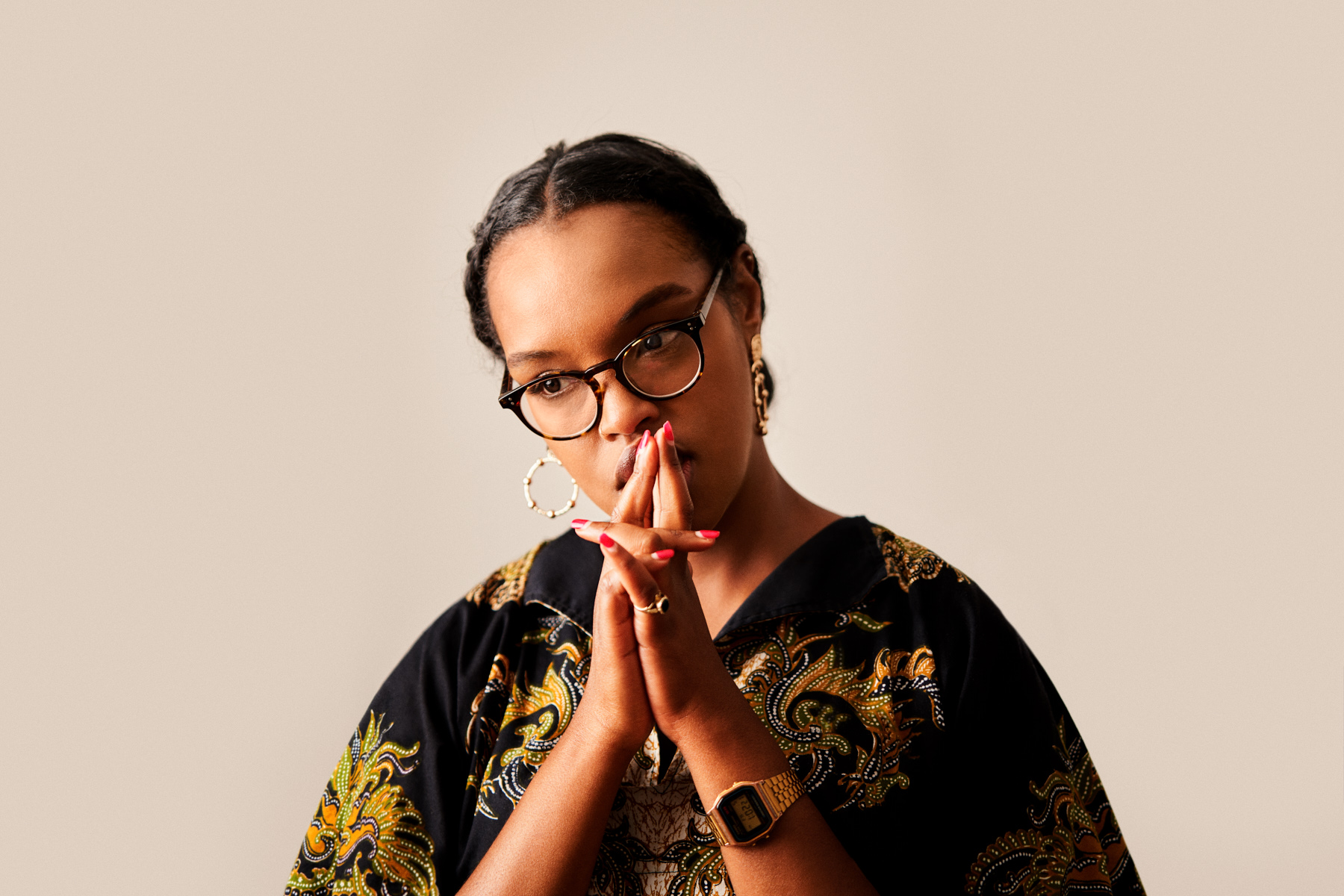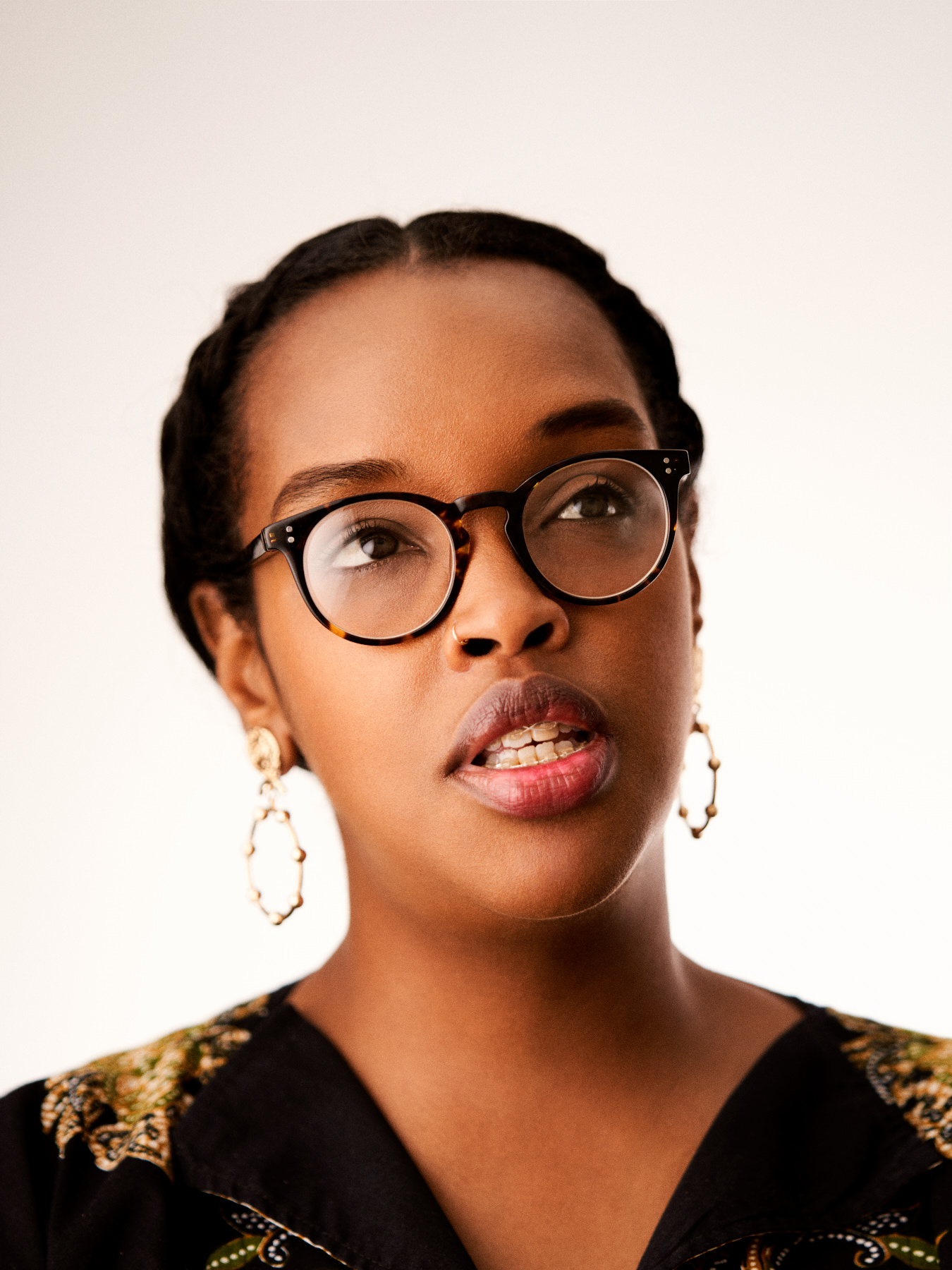- Home |
- Search Results |
- Nimko Ali interview: ‘I’m trying to create a world where FGM isn’t a reality’

Nimko Ali is tired. The 37-year-old award-winning activist has not been getting enough sleep due to the nightly drunk brawls outside her Camden flat. She calls me after a busy morning of working from home – or “saving the world” as she jokingly refers to it. “I was just subtweeting one of my friends who is completely anti-vaccine,” she informs me as we connect on Google Hangouts and get our digital bearings, “and I just think, can you imagine being anti-vaccine on the day the world has ended polio?” A few hours ago, news broke that Wild Poliovirus has been eradicated in Africa. Her video keeps freezing mid-sentence.
As I look on our split screens, we’re both wearing black sweatshirts, gold hoops and have our hair tied back. We’re also both millennial Muslim immigrants. Yet as Ali starts telling me about her experience of surviving female genital mutilation (FGM) at the age of seven, three years after fleeing a civil war in Somalia for Manchester, I’m quickly reminded that we’ve led two very different lives.
In her book What We’re Told Not To Talk About (But We’re Going to Anyway), recently released in paperback, Ali recounts her traumatic experience of FGM, the health complications that occurred and the reconstructive surgery she had as a result. The spiky manifesto delves into topics still seen as taboo by most societies – periods, orgasms, pregnancy and menopause. It reflects the author’s fight for female agency and emancipation from traditional patriarchal structures on a global level. A year since it emerged in hardback, reviews have praised Ali’s “refreshingly unapologetic feminism” and “display of female strength.”
'There's a blurred line because everything that I do is super political, but I don't want to be political.'
Accounts by women from all walks of life pepper the text, giving an insight into their complicated relationships with their bodies. Some of the stories come from women Ali met in refugee camps, while others are plain-spoken entries from Oscar-winning actresses she regularly brushes shoulders with.
The author argues that regardless of their wealth or geographical location, most women across the world are still fighting the same issues. She says she wanted the book to tell the stories of the women she has met: “Whether you're black, yellow or green, as a woman, we all have a first experience that you can take away from.”
Ali’s dedication to fighting for the rights of others is certainly impressive, but I wonder how it affects her personal life – activism is hardly a 9-5. “I just froze my eggs,” she announces unexpectedly. “It's really weird that my eggs are frozen two doors down from the only guy I’d ever want to get pregnant with, he’s a lawyer in the city," she says, in reference to an ex-boyfriend. "God is quite funny, he's got a massive sense of humour,” Ali fizzes, talking at me a hundred miles an hour.
'I know the pain of FGM'
The author, who is single, says she wants to start a family one day but admits that dating is complicated due to her public-facing career. Somewhat inconveniently, she keeps running into men with entirely opposing views to her: “I met with this guy [recently] and he was two of the most disgusting things – anti-choice and pro-death penalty,” she fakes a gag, putting two fingers down her throat.
As an outspoken campaigner, Ali is open about her experiences and has dedicated her whole adult life to ending FGM. “I know the pain of FGM”, she explains candidly as she looks back on her past. “When I see my niece and that her life has been uninterrupted, it's the most beautiful thing and sometimes I'm jealous of her being a nine-year-old that lives this innocent kind of life.”
In the UK alone, there were nearly 12,000 total attendances reported at NHS trusts and GP practices where FGM was identified within the last year. Last September, Ali co-founded The Five Foundation, a global partnership aiming to end FGM by raising the issue on an international level. The Foundation works to re-grant funding to grassroots organisations working to end FGM.
In 2018, Ali was named in the list of the BBC’s 100 women of the year and just 12 months later was appointed Officer of the Order of the British Empire (OBE) for services to tackling FGM and gender inequality. Her day-to-day includes securing funding for the foundation, working with corporations and talking to politicians.

“I’m trying to create a world where period poverty doesn’t exist, where FGM or forced marriage isn’t a reality,” she says, describing her mission. “There's a blurred line between that because everything that I do is super political, but I don't want to be political.”
But for someone who doesn’t want to be political, Ali has a long history of being involved in British party politics. Once a member of the Socialist Workers’ Party at university, the activist’s politics have changed dramatically over the years. She feels let down by the left and says she’s only received significant support for her campaign from the Conservative Party. “I literally don't even know who the hell to call within the Labour Party. Nobody is really pushing out on things.”
The Black Muslim anti-FGM campaigner from Somaliland is now a proud card-carrying Conservative and close friend of Boris Johnson, calling him “a real feminist” and saying history will remember his compassion. She’s also tired of being put in a box and the “wild assumptions” people make about her.
“I’ve never actually said anything that’s not liberal or left-leaning,” she says wearily. “I come from an immense, privileged place with lots of complexity. And I think I embrace that complexity. A lot of the problems are not about me. Actually, it's other people's perceptions of who I am.” It’s clear Ali has many unexpected layers, less so whether her critics are ready to give her the space to unpack them.
Ali offers views on everything over the course of our two-hour long call. Whether the conversation is about definitions of Islamophobia, the existence of billionaires, institutional racism, the Black Lives Matter protests or her contempt for Jeremy Corbyn – Ali is certainly not scared to voice her often eyebrow-raising views.
But she’s not here to agree with people, she just wants to end FGM. “I care about the fact that only two per cent of all funding earmarked for women ever gets to women. I care about global citizens having all this money. Like, those are the things that really matter to me. I really don't give a shit who people vote for.”
What did you think of this piece? Let us know by emailing editor@penguinrandomhouse.co.uk.